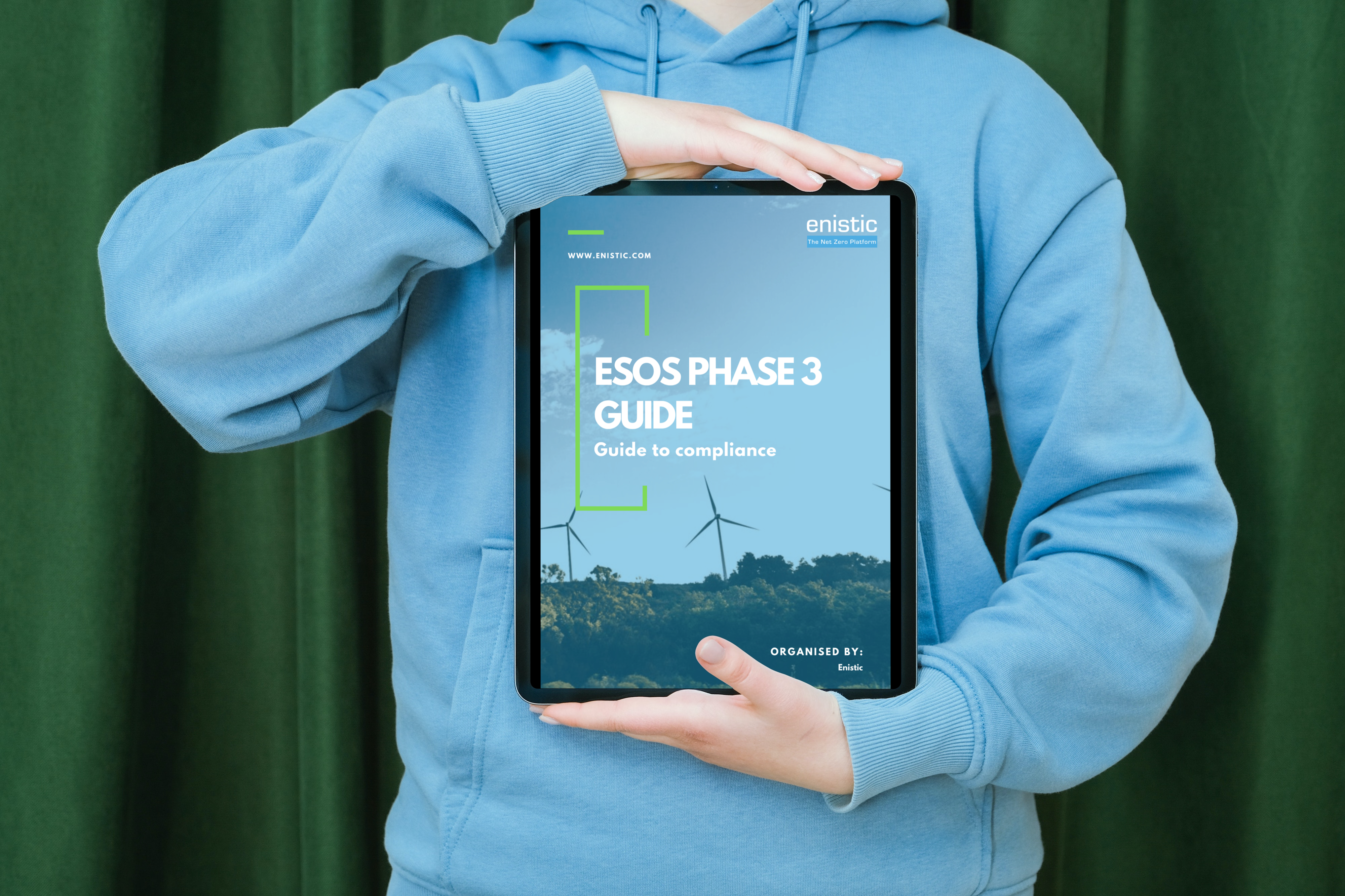ESOS, or the Energy Savings Opportunity Scheme, is a UK government program that requires large organisations to conduct audits of their energy use and identify opportunities for savings. The program applies to organisations that meet certain criteria, such as having at least 250 employees or an annual turnover of at least €50 million. The purpose of the program is to help save energy, reduce their carbon emissions, and save money on their energy bills. By conducting regular audits, organisations can identify where they are using energy inefficiently and take steps to improve their energy efficiency.
Who needs to comply with ESOS Phase 3?
Organisations that meet certain criteria are required to comply with the ESOS program. These criteria include:
- Private sector organisations with at least 250 employees and an annual turnover of at least €50 million, or an annual balance sheet total of at least €43 million
- Public sector partnerships that meet the above criteria
- Private sector organisations that are part of a corporate group that meets the above criteria
Please note that public sector bodies, charities, and others that do not meet the above criteria are not required to comply with ESOS. It is important for organisations to determine whether they are required to comply with the program and take the necessary steps to do so. I suggest consulting with a relevant authority or organisation for more information.

What happens if you don’t comply?
Organisations that are required to comply with the ESOS program but fail to do so may be subject to penalties. The specific penalties that may be imposed will depend on the circumstances of the case and the discretion of the relevant authorities. In general, however, organisations that do not comply with ESOS may face:
- Financial penalties, such as fines
- Requirement to conduct an energy audit and implement energy-saving measures
- Damage to an organisation’s reputation and credibility
- Loss of credibility with stakeholders, such as customers, employees, and investors
- Potential negative impact on the organisation’s bottom line
- Potential legal repercussions, depending on the circumstances and the discretion of the relevant authorities
It is important for organisations to ensure that they are in compliance with ESOS to avoid potential penalties and maintain a positive reputation. We suggest consulting with a relevant authority or organisation for more information about the specific consequences of non-compliance with the program.

How do you comply with ESOS Phase 3?
To comply with the ESOS program, organisations must take the following steps:
- Determine whether the organisation is required to comply with ESOS. The program applies to private sector organisations with at least 250 employees and an annual turnover of at least €50 million, or an annual balance sheet total of at least €43 million. It also applies to private sector organisations that are part of a corporate group that meets these criteria.
2. Identify a qualified Lead Assessor who can conduct an energy audit of the organisation. The Lead Assessor must be accredited by a recognized body, such as the Building Research Establishment (BRE) or the Energy Institute (EI).
3. Conduct an energy audit of the organisation’s buildings, industrial processes, and transport to identify opportunities for energy savings. The audit must cover at least 90% of the organisation’s total energy consumption.
4. Develop an action plan to implement the energy-saving opportunities identified in the energy audit. The action plan should include a timeline and a strategy for implementing the measures.
5. Submit a report to the UK Environment Agency, the body responsible for administering the ESOS program, to demonstrate compliance with the program. The report must include the results of the energy audit and the action plan for implementing energy-saving measures.
6. Implement the energy-saving measures outlined in the action plan and monitor progress to ensure that the organisation is meeting its energy-saving targets.
Get in touch with one of our carbon consultants today to find out more information about ESOS compliance.
We also have a helpful guide available to download. Click the image below to access.
What are the bemefits of complying with ESOS Phase 3?
Complying with ESOS can bring several benefits to an organisation, including:
1. Cost savings: By conducting regular energy assessments, organisations can identify areas where they are using energy inefficiently and take steps to reduce their energy consumption. This can lead to significant cost savings on energy bills.
2. Increased competitiveness: By becoming more energy-efficient, organisations can improve their competitiveness and gain an edge in the marketplace.
3. Improved environmental performance: Reducing energy use can also help organisations to reduce their carbon footprint and improve their environmental performance.
4. Compliance with legal requirements: Complying with ESOS is a legal requirement for certain organisations in the UK, so complying with the scheme can help to avoid penalties and comply with the law.
5. Enhanced reputation: By demonstrating a commitment to energy efficiency and reducing their carbon footprint, organisations can improve their reputation and enhance their public image.
If you have any questions about ESOS compliance and the upcoming phase 3, check out the link below and book a free consultation with one of our carbon consultants. They can talk you through the scheme requirements and assess whether or not your organisation needs to comply.
https://calendly.com/enistic/peter?month=2022-12





